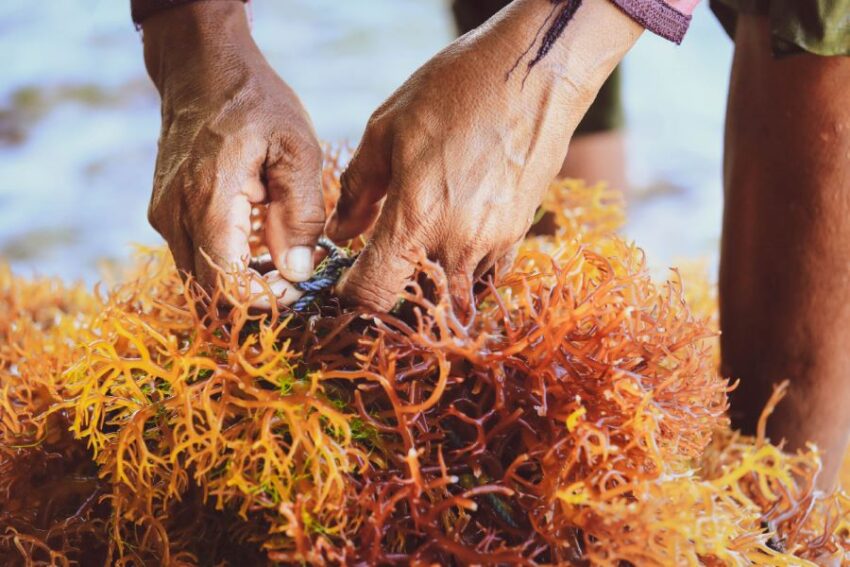Sunday, April 7, 2024

Seaweed farming is one of the main income generators for tourists on Bali‘s Nusa Penida and farmers want to see their livelihood merge with the growing tourism sector on their island home.
Bali is on a clear mission to establish more sustainable and culturally respectful tourism in Bali.
This includes creating tourism projects, initiatives, and attractions in new areas of the province and combining tourism with existing industries and landscapes.
The island of Nusa Penida has seen a rapid tourism development boom in the last ten years, especially so in the last five.
Before then, many families’ main source of income was fishing and seaweed farming. To this day, those families not involved in tourism are still very much connected to seaweed farming.
Now, leaders want to find a way to bring seaweed farming and tourism together, and there are more opportunities for genuinely fun and engaging collaboration than you might first think.
The innovation we are carrying out is a synergy in developing this superior product (seaweed), with developing tourism destinations, and creating a supply chain for seaweed and its processed products to support the creation of seaweed tourism destinations in the Nusa Penida Islands.
Speaking to reporters, the Head of the Regional Research and Innovation Agency in Klungkung, I Ketut Budiarta, said this.
In essence, leaders and farmers want to bring seaweed farming and tourism together, just like rice farming and tourism, quickly become a match made in heaven.
Visiting Bali’s iconic rice terraces is one of the most in-demand travel experiences on the island; whether Tegalalang, Jatiluwih, in Sideman, or beyond, all Bali tourists dream of taking an undisrupted stroll through the rice paddies.
So, can the seaweed farms of Nusa Penida do the same in time?
Buidarta said that the development of tourism, alongside seaweed farms, can help boost the local economy and local people’s income.
He noted that the number of people living on or below living wage is highest in Nusa Penida, up to 39% of the local residents, and 60% earn their sole income from the agricultural sector, either fishing or seaweed farming since Nusa Penida is not ideal land for growing crops.
Budiarta said, “So we see the need for innovation that increases access to seaweed products in Nusa Penida by developing tourism destinations.
Many of the seaweed farms are operated by women, meaning the development of tourism in these communities will also help boost women’s empowerment in this area.
A group of women farmers have come together to create the Sari Segara Women’s Farming Group.
Together, they make seaweed-inspired products, including dish soap, hand soap, and more, that can be marketed directly to tourists as souvenirs or to hotels to be used throughout the guest rooms and hotel complexes.
Seaweed farming is a big business; according to the 2023 Agricultural Census, over 15 million tonnes of seaweed was farmed in Bali, produced by just 1,066 farmers.
If these farmers could also be part of tourism programs that genuinely engage and inspire tourists, their income could grow substantially.
New tourism programs on offer in Nusa Penida would help attract more tourists to the island and improve tourism distribution around it.
At the moment, most tourists visit just for the day or a single overnight, visiting hot spots like Kelingking Beach, Diamond Beach and Manta Bay before whizzing back to mainland Bali before sunset.
Tags: bali, seaweed farming, Tourism
Monday, April 29, 2024
Monday, April 29, 2024
Tuesday, April 30, 2024
Tuesday, April 30, 2024
Monday, April 29, 2024